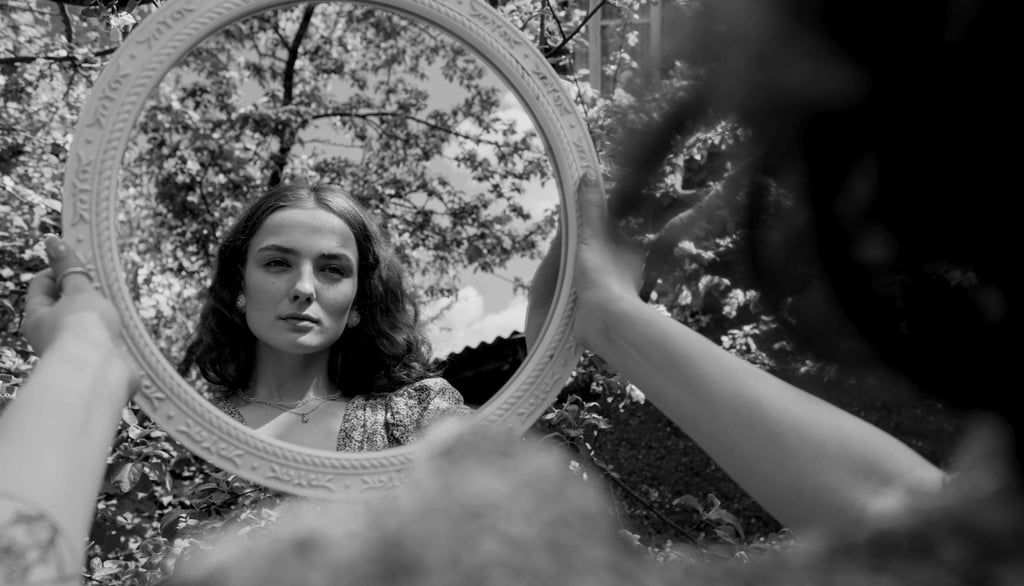LIVING UNAPOLOGETICALLY: EMBRACING AUTHENTICITY IN A WORLD OF MASKS
Being real isn’t risky—it’s the most liberating thing you’ll ever do. Here’s how to start.
SELF-MASTERYSELF-DISCOVERY


Ever seen someone trying way too hard to impress? Picture Behzad at a party, dropping names like confetti— "Oh, Taylor? Yeah, Swift and I were at the same party once. She didn’t know who I was, but I think we had a moment. Wild night" or that friend who swears they love hiking but is visibly breathless after 10 minutes uphill. It’s exhausting—for them and for everyone around them.
There was a time in my life when being "agreeable" felt like the safest path to walk. Without realizing it, I had become a chronic people pleaser. I nodded along to opinions I hadn’t even thought through, convinced that harmony mattered more than my voice. Over time, I stopped forming opinions altogether.
I had also become a master of hiding my true feelings, so much so that I didn’t just suppress them—I stopped feeling altogether. I wore a mask so well that even I forgot what was underneath. Every decision, every action, was rooted in assumptions about what others expected from me. I bent and shaped myself into what I thought they wanted, never pausing to ask, “But what do I want?” It wasn’t living; it was a performance, and eventually, the show wore me down.
Here’s the thing: people can smell inauthenticity like a bad cologne. It’s overpowering, makes them cringe, and lingers in the air longer than it should. And why do we do it? Because somewhere along the way, we decided that our real self wasn’t good enough. We layer on personas, opinions, and hobbies like mismatched accessories, hoping they’ll make us “fit in” or “stand out.” Spoiler alert: they don’t.
Why Inauthenticity Hurts (and Why We Do It Anyway)
The motivation behind inauthenticity is almost always fear. Fear of rejection, fear of being seen, fear of not being enough. Ironically, all that pretending makes us invisible—people don’t see you, just the costume. Over time, this takes a toll. It chips away at your self-worth and leaves you feeling like an imposter in your own life.
Others reasons why people behave inauthentically include:
Desire to Fit In: They prioritize approval over individuality.
Societal Pressure: Social media and cultural norms often reward conformity.
Low Self-Awareness: They don’t truly know themselves, so they borrow someone else’s identity.
Now Enter Azad: The Real Deal
Azad is the kind of person who lights up a room without trying. They’re not performing; they’re just being. They crack jokes about their love for '80s Bollywood movies (Mr. India and Lawaris are still their favorite movies), they talk passionately about their garden (yes, the tomatoes are thriving), and aren’t afraid to admit when they don’t know something. They share their love for pottery and how it helps them unwind after a tough week. They listen more than they talk, and when they share an opinion, it’s thoughtful and unapologetic.
Azad isn’t flashy, but they’re magnetic. Why? Because Azad is real.
How to Be a Azad
Living authentically doesn’t mean you need to have all the answers—it means owning the questions. Who are you? What do you love? What makes you tick? More importantly, what makes you laugh, cry, or dance like no one’s watching? Start there.
Food for Thought
If you peeled back all the layers—What’s one thing you’ve been stopping yourself from sharing with others? Today, try sharing it—just once—and see how it feels.
Final Note
Life isn’t about blending in or standing out. It’s about showing up, fully and unapologetically you. Authenticity will always win the room.
Forget Behzad. Act like Azad. Be a Lifeaholic.
